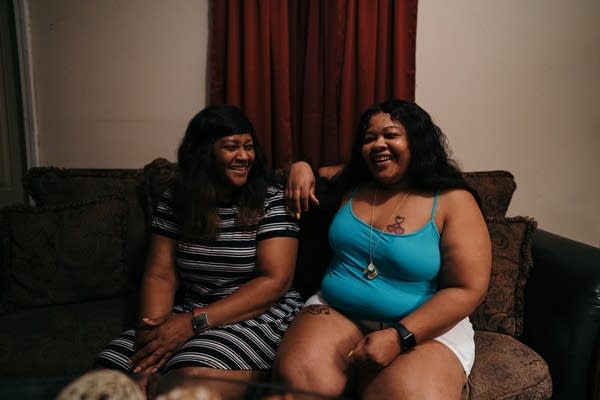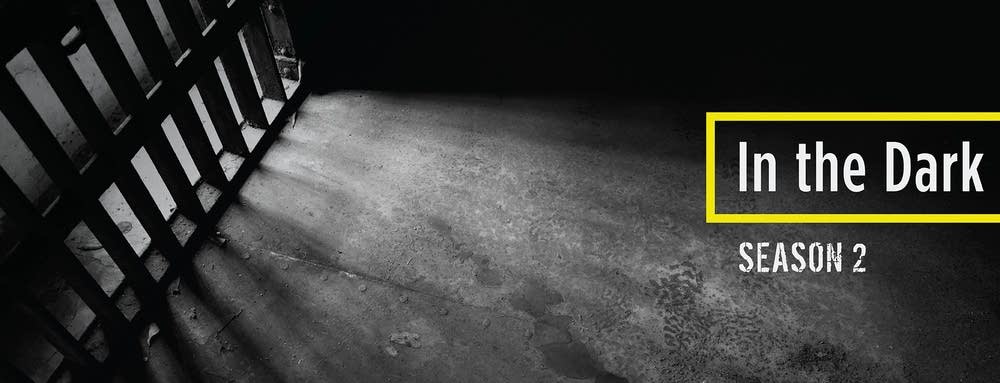Clemmie Fleming becomes second major witness to recant in Curtis Flowers case
She says she felt pressured to testify against Curtis Flowers in all six trials.

WINONA, Mississippi — Six times Clemmie Fleming has taken the witness stand to testify that she saw Curtis Flowers running from Tardy Furniture in Winona, Mississippi, on the morning that four people were murdered there. But she won't do it a seventh.
That's because, in an interview with In the Dark last week, Fleming recanted her testimony. She said she's never known what day she saw Flowers running.
"The whole time I've been telling them, I don't remember the day," Fleming said. "I've been confused of the day from the beginning. I just didn't know how to say it. I was scared I was going to go to jail."
Fleming's testimony was critical to the state's case against Flowers in all six trials because her statements placed him near the scene of the crime on the morning of July 16, 1996. As a prosecution witness, Fleming was second only in importance to jailhouse informant Odell Hallmon, who testified in four trials that Flowers confessed to committing the murders. Last year, Hallmon also recanted to In the Dark, saying that he told District Attorney Doug Evans what the prosecutor needed so he could receive leniency for his own crimes. "I helped them. They helped me. That's what it all boiled down to," Hallmon said.
Now, with the U.S. Supreme Court having overturned Flowers' conviction and a seventh trial possibly looming, prosecutors have lost their two most important witnesses.
Key testimony
A number of people testified to seeing Flowers walking around Winona on the morning of the murders. But, of all these so-called "route witnesses," Fleming offered the most incriminating testimony. She's long been the only living person to put Flowers on the same side of town as Tardy Furniture, and she's the only witness to describe him doing something out of the ordinary — running — on the morning of the murders. She's also known Flowers her whole life. The two grew up in the same neighborhood and are around the same age. She would have had no trouble recognizing him, whether he was walking or in a full sprint.
And her story has been relatively consistent across six trials. She's said that she was driven to Tardy Furniture on the morning of the murders by a man named Roy Harris. She had an overdue furniture bill, which Bertha Tardy had been asking her to pay. But, Fleming has testified, she wasn't feeling well when she and Harris pulled up to the store — she was five months pregnant at the time — and they drove away without going in. As they left, she's said she saw Flowers roughly 92 feet west of the store, running away from it, in the direction of his home. She's said she was sure of the date: July 16, 1996.
Fleming: I didn't feel like it.
Evans: Okay, would you explain your condition at that time to the ladies and gentlemen of the jury so they will know why you didn't feel like it?
Fleming: I was pregnant.
Fleming: On the side of Tardy's like -- what is the name of that street on the side? On the side of Tardy's?
Evans: Is it Carrollton?
Fleming: Carrollton Avenue.
Fleming: Yes, sir.
Evans: What did you see?
Fleming: Curtis.
Evans: Curtis who?
Fleming: Flowers.
Evans: Where was Curtis Flowers when you pulled beside Tardy Furniture around 10:00 that morning?
Fleming: Running on the side of it.
Fleming: Away.
Evans: He was running away from the direction of Tardy Furniture.
Fleming: Yes, sir.
Evans: How was he running?
Fleming: Running real fast.
Evans: Would you consider it a jog or an all-out run?
Fleming: An all-out run.
Fleming: No, sir.
In Flowers' first trial, Roy Harris' testimony corroborated Fleming's account. But by the second trial, Harris had recanted, telling Flowers' lawyers that what he'd said wasn't true. Speaking with In the Dark in 2017, Harris said he'd been pressured by Doug Evans' investigator, John Johnson, to provide a statement incriminating Flowers. "He showed me Curtis Flowers' picture. He asked me, 'Was that the fellow I seen running?' I told him no. I told him that wasn't the fellow," Harris said. "He kept on, kept on, kept on."
How it all started
Fleming said that she got drawn into the case because, at some point after Flowers became a suspect, she'd mentioned to some people — at least a coworker and a cousin — that she'd once seen him running near Tardy Furniture. One or more of those people apparently reported Fleming's story to law enforcement. Then, she says, law enforcement officers came to talk with her.
"They were like, 'You know something.' And I was like, 'No, I don't,'" Fleming recalled. "They said, 'A couple people done told us that you knew something, but you ain't telling.'"
She says one of the investigators — she doesn't clearly remember his name — threatened her with prosecution if she withheld evidence.
"He was in my face, all in my face. He was aggressive," Fleming said. "He was like, 'You're going to jail, and you'll get your baby took from you.' ... I had to go and tell him 'what I knew' or go to jail."
When Fleming finally gave an official statement to John Johnson nine months after the murders, she was only 21 years old and working as a housekeeper at the hospital in Winona. She'd given birth just a few months prior.
"I always did try to tell them I don't remember what day," Fleming said. "I tried to tell him, but he wouldn't listen. He wasn't hearing that."
Asked what the investigator seemed to be hearing, Fleming said, "What he wanted to hear."
Fleming's account strongly resembles that of Ed McChristian, another witness who testified in all six trials that he saw Flowers walking by on the morning of the murders. McChristian told In the Dark in 2017 that he never knew the day he saw Flowers, but that John Johnson was sure about the date when he came to talk to McChristian. "They had it down pat for me. ... I wasn't even really sure. They had more about it than I did," McChristian said. "Somebody had told them I seen him, so I couldn't say I didn't."
The fallout
At least one person has always said that Fleming didn't see Flowers on the day of the Tardy Furniture murders: her sister Mary Ella.
Mary Ella has been so certain of this fact because she remembers July 16, 1996 clearly, and says that she was with Clemmie. Mary Ella recalls discussing the furniture bill with Clemmie and deciding not to make the trip to Tardy Furniture that morning. The two were still at Mary Ella's house when a friend stopped by and told them that Bertha Tardy had been killed downtown.
In several of Flowers' trials, Mary Ella was called to the stand by Flowers' attorneys to tell her version of events and to undermine the credibility of Clemmie's testimony.
Going head-to-head in the Flowers case hasn't been easy on the sisters, and for years their relationship has been strained. Mary Ella has long thought that even though Clemmie didn't receive any of the reward money offered in the case, she gave her statement to investigators because she thought she might.
"I was always on the defensive end, bashing her. 'You know you're lying on that boy. Quit lying on that boy,'" Mary Ella recalled. "She would get so mad that she wouldn't come around me for a while."

Clemmie has stuck by her testimony all these years out of fear, she said, and never discussed what she now says happened to her — even with her closest relatives.
"They had told her if she didn't keep that same story that she was going to go to jail. But I didn't know," Mary Ella said. "I didn't know that up until today."
Clemmie said she's long regretted testifying against Flowers, and with all the recent attention on the case, she felt moved to set the record straight.
The perception that Clemmie lied and that she did it for money is one that many Winonans have shared with In the Dark reporters, and online. And that upsets her deeply.
"It disgusts me when I see the pictures of me on Facebook [testifying], so I hide it from my view. And everybody sharing [Curtis Flowers], I delete them. I deleted 200 people this week," said Clemmie, of the week in June that the U.S. Supreme Court overturned Flowers' conviction. Then she began to cry.
"I have to live with this every day. And I talk to God. I pray for Curtis," Clemmie said. "I just say, 'God, please don't let them kill him.'
"I'm sorry I testified."

